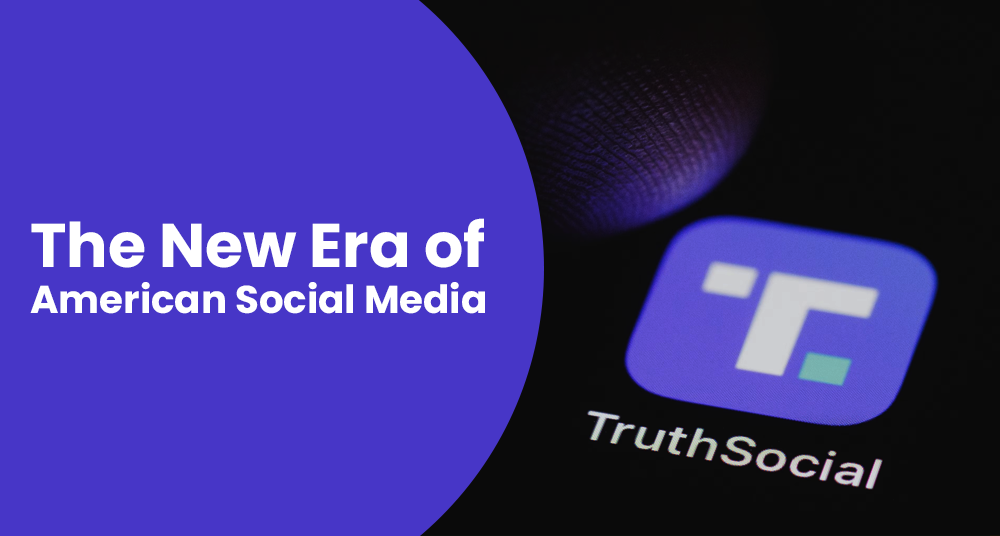In the ever-evolving landscape of social media, new platforms often emerge to challenge the dominance of industry giants like Facebook, Twitter (now X), Instagram, and TikTok. One of the most talked-about entrants in recent years is Truth Social, an American social media platform launched with the vision of promoting free speech and offering an alternative to what some see as biased moderation on mainstream networks.
Since its launch, Truth Social has generated both curiosity and debate, making it a significant player in the digital media space. With its growing user base, unique positioning, and prominent personalities using the platform, Truth Social represents a cultural and political shift in how people connect and communicate online.
Why Truth Social Was Created?
Truth Social was founded by former U.S. President Donald J. Trump after he was permanently suspended from Twitter in early 2021. The ban, which came after the events of January 6, 2021, sparked discussions worldwide about censorship, free speech, and the power of social media companies to silence individuals — even high-profile figures.
Trump’s vision for Truth Social was to provide an alternative platform where users could express their thoughts without the fear of unfair censorship or political bias. Operated under the Trump Media & Technology Group (TMTG), the app was pitched as a “big tent” social media platform — inclusive of all voices but especially tailored for those who felt silenced by mainstream outlets.
Features of Truth Social
At first glance, Truth Social resembles Twitter in its layout and functionality. However, it incorporates a few distinct features:
- Truths and Re-Truths – Instead of tweets and retweets, users share “Truths” and amplify them by “Re-Truthing.”
- News Feed Focus – Content is displayed in a straightforward feed, focusing on user updates and trending discussions.
- User-Friendly Design – The interface is simple, making it easy for new users to adapt.
- Community Guidelines – While promoting free speech, the platform also sets boundaries against illegal activities and threats, aiming for balance.
- Integration with Conservative Media – Many news pieces and content circulating on Truth Social come from right-leaning sources, aligning with the platform’s core audience.
The Growth of Truth Social
Though initially met with skepticism, Truth Social quickly rose to prominence due to its association with Trump. Millions downloaded the app within its first few weeks, and its servers occasionally struggled to handle the influx.
The app gained particular traction among conservatives, Trump supporters, and those critical of big tech moderation practices. While it has yet to achieve the scale of platforms like X or Facebook, its influence continues to grow, particularly in the United States.
Popular Figures on Truth Social
One of the unique elements driving engagement on Truth Social is the presence of high-profile individuals. Many political leaders, commentators, and celebrities use the platform actively, making it a hub for political and cultural discussions. Some of the most notable users include:
- Donald J. Trump – The most prominent figure on the platform, Trump shares announcements, commentary, and campaign updates directly with his followers.
- Devin Nunes – The former Congressman who now serves as CEO of Trump Media & Technology Group.
- Kari Lake – Former news anchor and Republican political figure, highly active in sharing political views.
- Marjorie Taylor Greene – U.S. Representative and outspoken conservative voice.
- Matt Gaetz – Another prominent U.S. Representative active on the platform.
- Rand Paul – Senator known for his libertarian-leaning stance.
- Eric Trump and Donald Trump Jr. – Both members of the Trump family contribute actively to discussions.
These figures not only use the platform for communication but also bring their large followings, giving Truth Social a strong political identity.
How Truth Social Differs from Other Platforms?
While comparisons with Twitter (X) are inevitable, Truth Social aims to distinguish itself in a few key ways:
- Freedom of Expression – The core mission is to allow more open dialogue without what users perceive as “silencing” of certain views.
- Political Identity – Unlike neutral platforms, Truth Social openly embraces its alignment with conservative and right-wing voices.
- Community Focus – The platform positions itself as a safe haven for like-minded individuals, creating a more tight-knit digital community.
- Cultural Impact – Truth Social is less about entertainment and more about political, social, and ideological conversations.
Challenges Faced by Truth Social
Despite its rise, the platform also faces several hurdles:
- Limited Reach – Its user base is primarily U.S.-centric, with little international traction.
- Political Labeling – Being closely associated with one political figure makes it difficult to expand beyond that demographic.
- Monetization Issues – Competing with giants like Meta and Google for ad revenue is challenging.
- Technical Glitches – Like many new apps, it has experienced bugs, slow rollout, and server downtime.
These challenges highlight the uphill battle Truth Social faces in becoming a mainstream global platform.
The Future of Truth Social
As of September 2025, Truth Social remains an active platform with a dedicated user base, though its growth has slowed compared to its early days. The 2024 U.S. presidential election gave it a major boost in visibility, and many of those users have stayed engaged, making the platform a stronghold for conservative political discourse.
Looking ahead, the platform’s future depends on whether it can move beyond its political identity and attract a wider audience. Expanding into entertainment, lifestyle, and business communities could help it grow, while refining its monetization strategies remains essential to compete with global giants like Meta, X (formerly Twitter), and TikTok. If Truth Social adapts effectively, it could solidify its place as a niche but influential social network in the evolving digital landscape.
Why Truth Social Matters
Regardless of political affiliation, the rise of Truth Social signifies a major shift in the digital era. It demonstrates the growing desire for platforms that cater to specific ideologies, interests, or communities rather than trying to be everything to everyone.
In the same way that Twitch carved out space for gamers and LinkedIn for professionals, Truth Social is carving out space for a politically engaged, predominantly conservative audience.
Conclusion
Truth Social is more than just another social media platform — it is a cultural statement, a response to perceived censorship, and a hub for a particular segment of society. While it may not rival Facebook or X in numbers, it has already made an impact by showing that there is room for platforms built on values, ideologies, and freedom of speech.
Its rise reflects the changing dynamics of the internet: users are no longer satisfied with one-size-fits-all platforms. Instead, they are seeking communities where they feel heard and represented. Truth Social may be a politically charged experiment today, but it is undeniably shaping the future of social media tomorrow.






What do you think?
It is nice to know your opinion. Leave a comment.